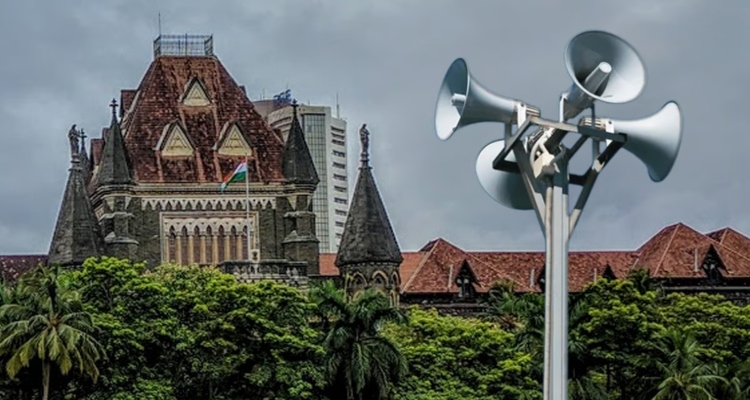
The Bombay High Court has directed the Maharashtra state government to take strict action against noise pollution caused by loudspeakers at places of worship, regardless of religion, stating that the use of loudspeakers is not an essential part of any religious practice.
The court highlighted the harmful health effects of noise pollution and emphasized that denying permission for loudspeakers does not violate constitutional rights to freedom of speech or religion.
“Noise is a major health hazard. No one can claim their rights are affected if they are denied permission to use loudspeakers. It is in the public interest that such approvals should not be granted,” Justices Ajay Gadkari and Shyam Chandak stated.
The court also ordered the state to consider implementing systems in loudspeakers to control their decibel levels, including the potential calibration or auto-fixation of limits to prevent excessive noise.
The ruling came in response to a petition filed by the Jaago Nehru Nagar Residents Welfare Association and Shivsrushti Cooperative Housing Societies Association in Kurla (East), which raised concerns about the use of loudspeakers at nine mosques and madrassas, often starting as early as 5 am and continuing past midnight.
The petitioners argued that the police had failed to take action against these disturbances, leading to health issues in the neighborhood.
The court reiterated the laws around noise pollution, particularly those laid out in its August 2016 judgment, which had been upheld by the Supreme Court. According to the Noise Pollution Rules, residential areas are subject to a 55-decibel limit during the day and 45 decibels at night.
The court clarified that these limits apply to the cumulative noise from all loudspeakers, meaning if multiple places of worship are using loudspeakers, their combined sound levels cannot exceed these limits.
The judges pointed out that police have the authority to take action under both the Mumbai Police Act and the Maharashtra Police Act. They also acknowledged that people often avoid complaining until the noise becomes unbearable. As part of the ruling, the court ordered the Mumbai police commissioner to instruct all officers to use mobile applications for measuring decibel levels.
Additionally, the court outlined a process for handling complaints about noise from loudspeakers:
– On the first complaint, offenders should be cautioned.
– On subsequent complaints, fines should be imposed on the religious institutions, which will be recovered from the trustees or managers.
– If complaints persist, the police should seize the loudspeakers and amplifiers and revoke any licenses allowing their use.
This ruling aims to balance the religious practices of citizens with the need to protect public health and maintain peace in residential areas.




